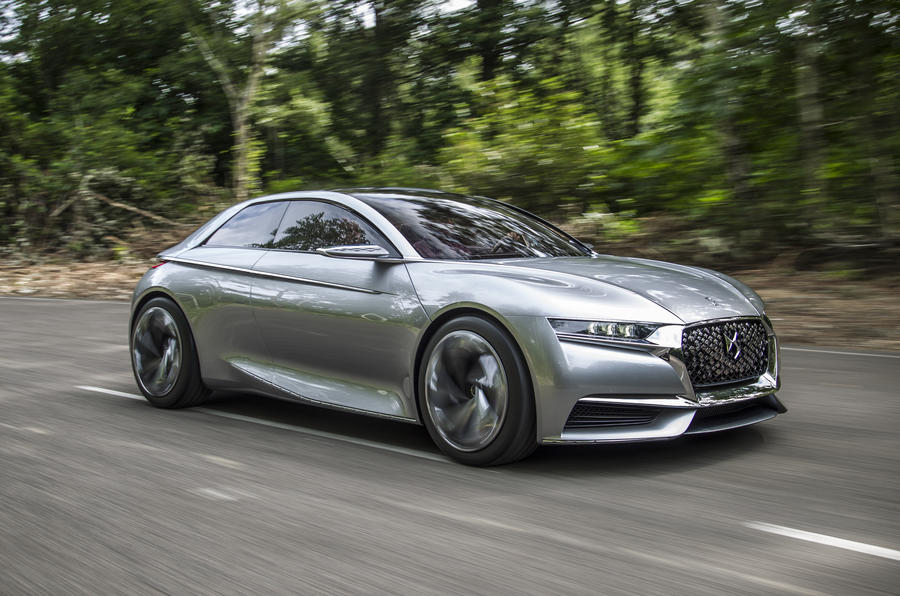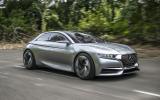Launched as the Divine DS at the tail end of 2014, this concept car was created to show the future styling direction for the now standalone DS brand, as well as encapsulating all of the brand’s ideals into one vehicle.
As such, it will never make production in this form – but it is crucially important if DS is to break free of its mainstream Citroën-derived shackles and establish itself as a credible player in the premium market, fighting for sales with Audi, BMW, Mercedes and the like, over the next five years or so.
The concept is based around a fairly standard C-segment shape, chosen because the firm views it as the most challenging – and potentially rewarding - sector in which to compete, as well as one in which it has had success already. Little wonder that rumours suggest a vehicle of the Divine’s proportions could neatly replace today’s DS4 and DS5 in time.
Although there’s no official confirmation, insiders also suggest that DS’s confirmed six-strong line-up, due to be launched by 2020, will include a large and a small SUV, a large and a small saloon car and a replacement for the successful DS3 hatchback.
The core values highlighted by Divine DS are, according to DS boss Yves Bonnefont, the brand’s commitment to avante garde design (summed up as “sensual and remarkable”), cutting-edge technology (comprising efficient powertrains and connectivity), refinement with a focus on faultless quality and dynamicism (but only when balanced with serenity, and as a result never with more than 300bhp as that would be too “brutal”).
Although this is a chance to drive the car, there’s no escaping the fact that it is a concept in the purest sense, and as such it’s important to separate the extravagant flourish designed to catch attention from the exaggerated flourish designed to hint at what might be possible for production in time.
In the former category you can safely put the scissor and coach doors and interior crystal decorations, which are here to add some bling and highlight the car’s cutting-edge style and high-end fashion aspirations.
Surprisingly, the absence of a rear window falls into the latter category, according to Divine’s makers. With the rear window covered by a shell-like aerodynamic structure, Divine uses cameras to project an image of what is behind the car onto a rear-view mirror-shaped screen found in the usual place. Its makers point out that lorry drivers can’t see out of the back of their vehicles today, although they do concede that their technological solution may be some years away from production.
More logically, the sharp-edged diamond shapes that adorn many of the surfaces hint at a styling theme that will run on all production cars and which are seen to typify the kind of avante garde styling theme for which DS wishes to become known. So too the chrome double wing on the nose, which is a clear but modern nod to DS’s heritage.












































Join the debate
Add your comment
Divine....
A production version should find buyers If Citroen can ensure that
1 it drives as good as it looks
2 the perceived quality of the interior is in the ballpark of the Germans
3 it is competitive on fuel efficiency and emissions
Depth of engineering is critical
It still needs work
I think the Divine has much going for it in it's detail and I do hope some if the inspiration is retained by the time production cars arrive using those themes. However, whilst I have admired the DS5 since it arrived on the scene, a test drive of the very latest DS5 "60" was something of a disappointment. There is a lot to like about it but the manual version had a very gritty feeling clutch and the much discussed ride whilst possibly improved, is still not good enough. It jiggles over broken surfaces, thumps into pot holes and transverse imperfections result is a heavy thud....it is not dreadful but is a long way off the quality Citroen needs to compete with the default manufacturers.....a Ford Focus us now a much nicer drive altogether which should concern the Citroen chassis engineers!